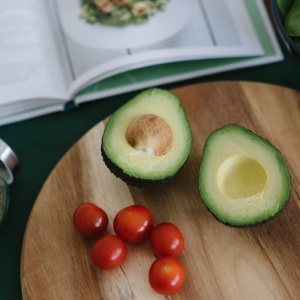
FCRN member Gesa Biermann of Ludwig-Maximilians-University Munich has co-authored this paper, which analyses trends on a popular German recipe website, finding annual growth rates of 16% in vegetarian recipes and 3.5% in vegan recipes between 2005 and 2018.
The figure below illustrates the change in recipes tagged as vegan, vegetarian, beef, pork or poultry.
 Image: Figure 1, Asano and Biermann. Share of submitted recipes containing different tags from 2005 to 2018 as a time series. Dashed lines present total shares of tags on the platform, solid lines show submission shares per tag. Curves are smoothed using a 12-month moving average. Percentages do not add up to 100% as recipes can have multiple tags.
Image: Figure 1, Asano and Biermann. Share of submitted recipes containing different tags from 2005 to 2018 as a time series. Dashed lines present total shares of tags on the platform, solid lines show submission shares per tag. Curves are smoothed using a 12-month moving average. Percentages do not add up to 100% as recipes can have multiple tags.
The paper also finds that the number of website users switching to using vegetarian and vegan recipes is rising, with around 8.4% of users using vegetarian recipes in 2018, and 1.5% using vegan recipes.
The authors additionally conducted qualitative interviews with ten website users who had undergone a dietary change (towards vegetarianism or veganism) and found that six participants mentioned their transition was eased by the availability of recipes that use a meat replacement but are otherwise similar to meat-based recipes.
Abstract
The current and growing demand for animal protein exerts immense pressure on the environment through diverse effects such as land-use change, water use and greenhouse gas emissions. Curbing meat demand by transitioning to largely plant-based diets is key to increasing food system sustainability. In this study, we investigate dietary transitions by analysing a dataset of over 240,000 recipes with 2.5 million user ratings from the most popular German recipe website. We find an increase in the vegetarian and vegan recipes submitted, with annual growth rates of 16% and 3.5%, respectively. We further detect a consistent relative increase in the number of users switching to these diets and maintaining them over the last 8 years. We show that the transition is eased by initially switching to vegetarian diets that resemble meat-based ones in their ingredient makeup. These findings are corroborated by qualitative interviews with users who have recently switched diets. Our results demonstrate the application of recipe metadata to determine individuals’ dietary choices and large-scale food trends, and identify pathways to a more sustainable food system.
Reference
Asano, Y.M. and Biermann, G., 2019. Rising adoption and retention of meat-free diets in online recipe data. Nature Sustainability, p.1.
Read the full paper here or here (PDF link). See also the Foodsource resource Which diets generate fewer GHG emissions and other environmental impacts?







Post a new comment »